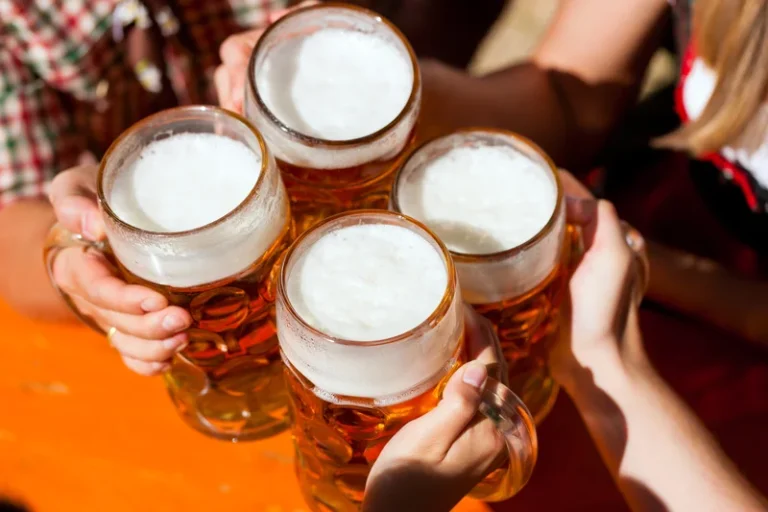
But will drinking any alcohol prevent you from losing any unwanted fat? You can strike a balance if you’re looking to lose weight while still enjoying an occasional drink with friends. If you’re working on losing weight, then you know it can involve a lot of ups and downs (literally). You’ve likely considered what you’re eating, what you’re not eating and of course, how much you’re moving.
- This leads to a vicious cycle of weight gain and increased belly fat.
- Your metabolism plays a key role in how alcohol affects your weight.
- Even drinking a little too much (binge drinking) on occasion can set off a chain reaction that affects your well-being.
- Several studies have grouped all levels of individual alcohol intake above 30g/day as ‘heavy’ drinkers [12, 38].
- Drinking alcohol may lead to inflammation and irritation in the stomach which results in bloating.
Does Alcohol Really Cause Weight Gain?
However, even uncarbonated wine or spirits may cause bloating or other symptoms. Stomach irritation or inflammation can occur for many other reasons, such as infections, an autoimmune https://ecosoberhouse.com/ disorder, smoking cigarettes, food allergies, or some types of medications. Abdominal bloating is when the stomach feels full of gas and may become distended (sticks out).
- Sweet wines tend to have more calories, while sparkling wines tend to have fewer.
- Talk with a doctor if you have any questions about alcohol, weight, or limiting your alcohol intake.
- Alcohol has been reported to account for 16% of adult drinkers’ total energy intake in the United States [68], with men consuming about three times the amount consumed by women [68].
- Alcohol is considered a source of “empty calories.” Unlike foods that contain essential nutrients, alcohol adds calories to your diet without providing nutritional benefits.
Don’t Drink Too Much (a.k.a. Mindful Drinking Habits)
- There were no significant changes in weight for normal weight participants over the four-week intervention study.
- Drinking frequently can also result in excess fat or weight gain.
- Too much cortisol, however, encourages fat storage in the body (particularly in your mid-section) and is the hormone responsible for lowering testosterone levels.
- You’ve just poured 674 nutritionally empty calories into your body.
- Alcohol disrupts your metabolism and lowers testosterone which, in addition to the added calories, contributes to weight gain.
“I prefer to drink my calories,” he told us, pointing to the bottle of red wine he had ordered. This he did—by consuming the entire bottle. Alcohol can also influence hunger via several central mechanisms. The effects of alcohol on opioid, serotonergic, does alcohol make you gain weight and GABAergic pathways in the brain all suggest the potential to increase appetite [62–65]. A summary of the effects of alcohol on important appetite hormones and central neurological pathways in humans can be found in Table 2.

Alcohol has A LOT of calories.
A review by Yeomans [5] highlights some of the potential explanations for alcohol’s influence on weight gain or obesity. First, as previously mentioned, energy from alcohol appears to be additive to energy from other sources [5]. Several studies suggest that consuming alcohol before or during a meal does not influence the amount of food eaten in that meal, despite increasing the energy density of the meal [5].
Alcohol is a Source of “Empty” Calories
So yes, it’s possible to gain weight from alcohol, but it’s not inevitable. At Healthgrades, our Editorial Team works hard to develop complete, objective and meaningful health information to help people choose the right doctor, right hospital and right care. Our writers include physicians, pharmacists, and registered nurses with firsthand clinical experience. All condition, treatment and wellness content is medically reviewed by at least one medical professional ensuring the most accurate information possible. The exact number of calories can vary widely by drink and serving size.

Factors that may Explain the Conflicting Findings between Alcohol Intake and body Weight

Some alcoholic drinks, such as beer, can also cause boating due to gas. There are almost 155 calories in one 12-ounce can of beer, and 125 calories in a 5-ounce glass of red wine. By comparison, a recommended afternoon snack should have between 150 and 200 calories. A night out with several drinks can lead to consuming a few hundred extra calories. A less extreme version of substituting alcohol for food when attempting to lose weight is to eliminate carbohydrates from one’s diet, and to consume wine instead. Several years ago we had dinner with an acquaintance who refused to take any bread from the breadbasket because he was on a diet, and lectured us on the evils of carbohydrates.
Best nonalcoholic drinks and spirits
Having too many drinks in one occasion means you’ll be ingesting hundreds of extra calories, if not thousands. While alcohol doesn’t necessarily affect everyone the same way, it can cause some people to gain weight due to its high-calorie content and the way it affects metabolism, hunger-hormones, and decision making. Alcohol can also affect hunger levels, which may lead you to snack more, which then causes you to consume more calories, which ultimately may cause weight gain. So, if you’re eating pizza or even a light salad with your cocktail, the calories from that food get stored as fat instead of burned for energy. Generally, you must consume fewer calories than you use to lose weight.
What You Eat During and After You Drink
As I mentioned above, lower testosterone levels means a reduced ability to burn fat. This is because alcohol activates starvation mode in the brain, which is why you may suddenly catch yourself eating an entire bag of Doritos after a long night out as if your life depended on it. This may all sound as if alcohol is ruining your chances of that beach body.
